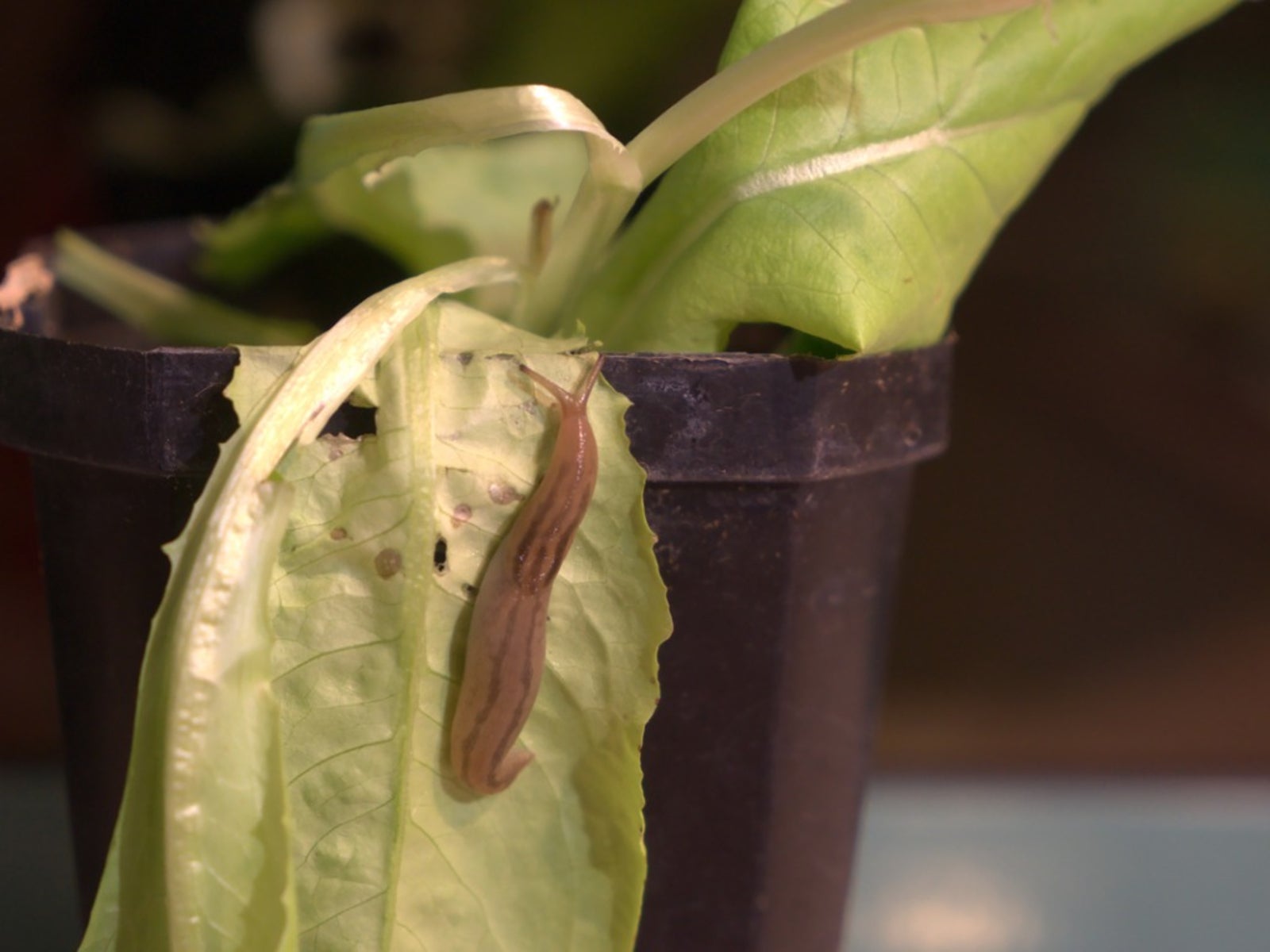Slugs Eating Potted Plants: Protecting Container Plants From Slugs


Slugs are capable of wreaking havoc in the garden, and even potted plants aren't safe from these voracious pests. Slugs eating potted plants are easily spotted by the silvery trail they leave behind, and by the round, chewed holes in the foliage.
Getting Rid of Slugs in Container Plants
Before resorting to toxic chemicals, try non-toxic solutions to deter slugs from pot plants.
Slug Proofing Containers with Copper
Copper discourages slugs because the slime from the pest's body reacts with the copper, which creates an unpleasant electric shock to slugs in container plants. Purchase copper rings large enough to fit around single plants or small plant groupings. You can also place thin, self-adhesive copper tape around containers.
Protecting Container Plants from Slugs with Natural Predators
Natural predators, such as frogs and toads, love to feast on slugs, effectively keeping the slimy pests in check. A small, shallow pond or even a consistently muddy patch attracts the helpful amphibians. Be sure to provide shady places such as rocks, plants, or small logs to provide shelter from the heat and bright sunlight too. Certain birds, including blackbirds or thrushes, also help keep slugs under control. A birdfeeder placed near the potted plant encourages birds to visit your garden.
Deter Slugs from Pot Plants with Kitchen Scraps
Scratchy substances, such as eggshells, kill slugs by abrading the slimy coating, causing the pests to dehydrate. Rinse eggshells first and spread them out to dry, then crush the shells and scatter them over the surface of potting soil. Coffee grounds are also scratchy and caffeine is toxic to slugs. Additionally, the grounds serve as effective and healthy natural mulch.
Protecting Plants with Other Plants
Planting pungent herbs with regular potted plants often helps to discourage slugs. For example, try planting rosemary, garlic, chives, or sage next to your ornamental plant.
Additional Tips for Slug Proofing Containers
Limit mulch such as bark chips or shredded bark to a thin layer; otherwise, the moist organic material provides a handy hiding place that attracts slugs. If you opt to use slug pellets, read the container carefully and use the product strictly as directed. Usually, only a few pellets are required to keep slugs under control. Non-toxic slug pellets are also available.
Gardening tips, videos, info and more delivered right to your inbox!
Sign up for the Gardening Know How newsletter today and receive a free copy of our e-book "How to Grow Delicious Tomatoes".

A Credentialed Garden Writer, Mary H. Dyer was with Gardening Know How in the very beginning, publishing articles as early as 2007.
-
 Looking For Plants To Give You The Soft And Fuzzies? Try These 5 Fuzzy Leaf Plant Options
Looking For Plants To Give You The Soft And Fuzzies? Try These 5 Fuzzy Leaf Plant OptionsLovers of texture, drama, silver foliage and tactile plants will adore these special sensory garden additions. These fuzzy leaf plant options will leave you all aglow
By Susan Albert
-
 Get Ready For A Summer Of Hummers! Grow These Full Sun Hummingbird Plants and Flowers
Get Ready For A Summer Of Hummers! Grow These Full Sun Hummingbird Plants and FlowersIf you’re lucky enough to enjoy a sunny backyard, make sure you are maxing out on your pollinator opportunities and grow these full sun hummingbird plants and flowers
By Tonya Barnett